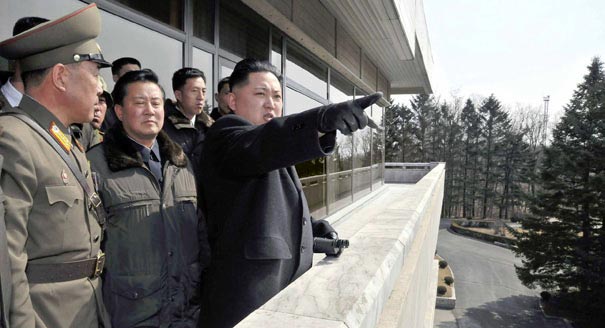About one hundred days ago, the world looked very nervous as it watched developments on the Korean Peninsula. As South Korea and the United States were conducting their routine, but impressive defense exercises, North Korea responded with a series of highly bellicose statements and launched a series of steps which appeared to be a preparation for war. Suddenly, the specter of a new war in Korea, 70 years after the 1953 armistice, began to haunt North-East Asia. Things have calmed down quite a bit since past spring, but the situation between the North and the South remains tense. Yet, the recent crisis has provided a few valuable insights which should not be wasted.
One refers to the political situation in North Korea. Kim Jong Un has strengthened his grip on power within Pyongyang’s feudal system. The generals in particular were told to mind their military business and leave policymaking to the Party. Those who doubted the wisdom of withdrawing from politics were shot. The young leader turns to the economy, even though he will tread with caution. Nationalism is being expanded beyond the dogmas of juche. In foreign policy, North Korea does not want to be China’s vassal, and seeks direct ties with the United States.
Another observation has to do with North Korea’s nuclear program. There is no way for Pyongyang to renounce nuclear weapons. They both protect the regime from a potential U.S.–ROK attack and allow it to gain international assistance through blackmail. They also make North Korea look and feel much more important than the impoverished country actually is. The five countries negotiating with North Korea need to understand that the objective of their currently frozen negotiations—North Korea’s denuclearization—cannot be met within the format of the Six-Party Talks.
Finally, no one can “deliver” North Korea, not even its only ally and main donor China. The way forward is through engaging Pyongyang in various economic projects which meet the needs of the North Korean leadership. Resumption of North Korea–ROK economic ties; more Chinese investment in the North; and building a gas pipeline and a rail road from Russia to South Korea across North Korea look like potential game changers as far as the future development of North Korea is concerned. The nuclear issue needs to be discussed, within the broader context of regional security, but it should not be allowed to block engagement in other areas. Pyongyang needs to be drawn out of its self-made shell, not cornered there. Experience shows that party apparatchiks can be better partners than generals.
